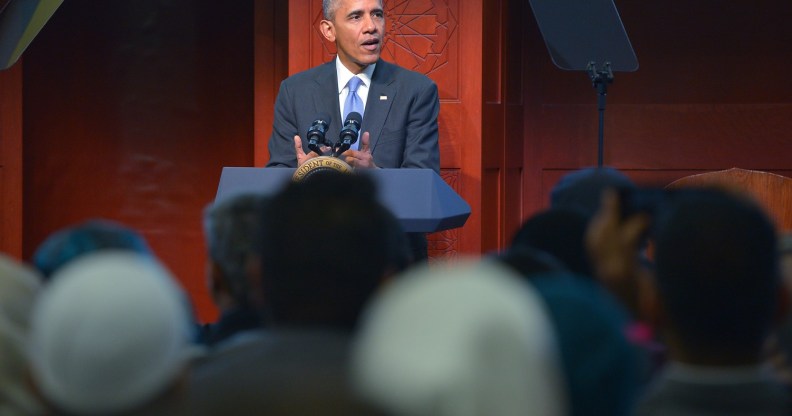Obama was ‘energised and inspired’ by Russian gay activists at G20 meet in St Petersburg

As President Obama met with nine LGBT activists during his trip to St Petersburg for the G20 summit earlier this month, he was so “energised intellectually and inspired” by their talks, the meeting lasted twice as long as expected.
Nine activists met with Obama as his last official engagement for the G20 summit. The group included three activists from organisations not normally included in official invitations to meet with senior US officials.
In a statement by the White House Ambassador, Michael McFaul, the president was apparently so “inspired” by the meeting, he extended its duration from 40 minutes into almost an hour-and-a-half.
Mr McFaul writes: “The President, National Security Advisor Susan Rice, and I met with a fascinating group of activists.”
The US ambassador goes on to write: “Our colleagues gave President Obama a strong sense of the challenges facing civil society leaders in Russia today, especially new laws that place restrictions on foreign-funded NGOs and discriminate against the LGBT community.”
Mr McFaul adds: “Like others around the world, the President has been following with particular concern the increased climate of intolerance and violence that have accompanied the new law affecting the LGBT community, and he had the chance to hear from two courageous LGBT activists from St. Petersburg who described the challenging environment for their work.
“Participants urged him to keep human rights, including LGBT rights, on his agenda; to correct mischaracterizations of American policy and laws (especially the false analogy between Russia’s “foreign agent” law and U.S. legislation on lobbying); to empower multilateral organizations to pressure the Russian government to meet its international commitments; and to stand up against discrimination and for freedom of assembly and expression.”
He then explains the President was so “energized intellectually and inspired” that “a meeting planned for forty minutes turned into almost an hour-and-a-half interactive discussion.”
Mr McFaul adds: “In the car ride to the Air Force One after the event, the President commented on the articulate, passionate, and practical presentations these leaders had made, and we had a very wide-ranging discussion about civil society in Russia, civil society and human rights around the world, and democracy more generally.”
He went on to say, however that Obama said “nothing concrete” about internal Russian affairs, respite assurances that the US had communicated its concerns.
Mr Makarov said that Obama actually only spent two minutes addressing LGBT rights in Russia, and attendees said they had raised human rights issues in the US, including the cases of Edwards Snowden and Bradley Manning, and the Guantanamo Bay prison camp.
“The kinds of activities that are represented here are critically important to Russia’s development, and I’m very proud of their work,” Obama said, according to the statement.
“I think it is important for us to remember that in every country – here in Russia, in the United States, around the globe – that part of good government is making sure that we’re creating a space for civil society to function effectively.”

